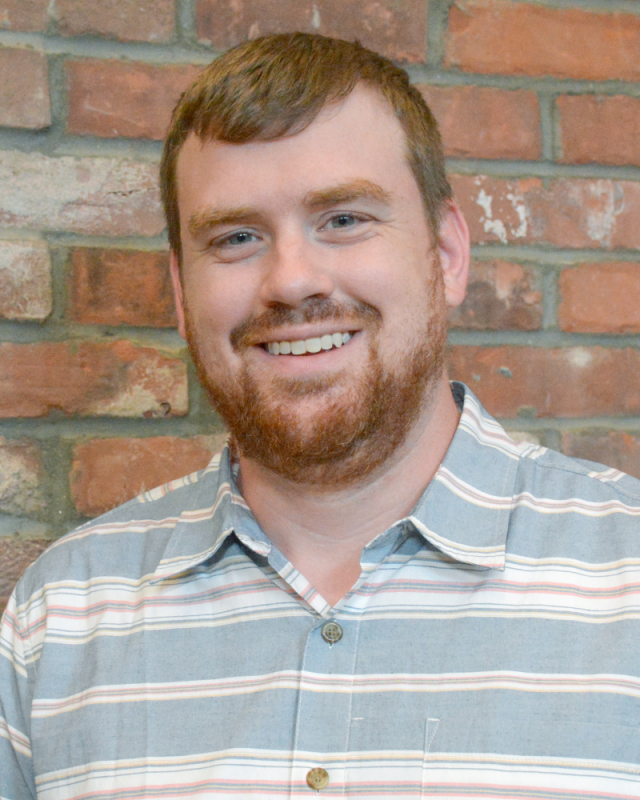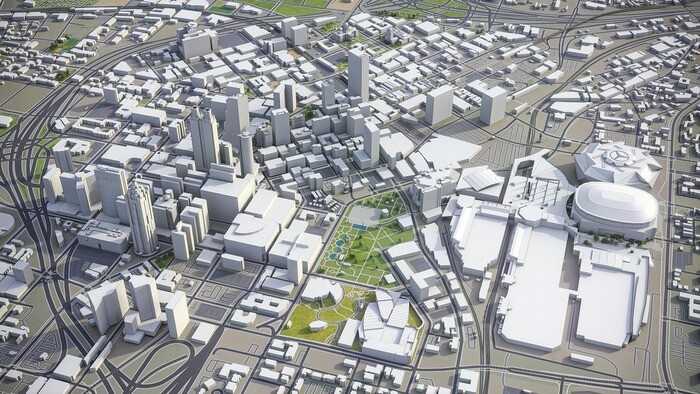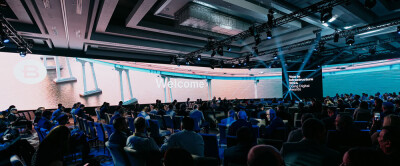Last week, Cesium announced the first four recipients of their Ecosystem Grants, their “commitment to fuel innovation, increase interoperability, lower the barrier for entry, and expand the 3D geospatial ecosystem.” They will continue to hand out grants on a rolling basis, but the first four to be awarded grants from the 3D geospatial company were: Ethan Berg of Agora World, Emma Hain of North Road, the Hidenori Watanave Laboratory at the University of Tokyo, and Peter Kimberley of Gradata Systems.
Cesium first announced their new Ecosystem Grants program back in late March, continuing the company’s foundation in the idea that, in order for the 3D geospatial ecosystem to reach its full potential, openness needs to be a defining characteristic. This program includes a pool of $1 million (USD) in funding, with recipients receiving grants ranging from $5,000 to $50,000 while retaining full ownership of their work. In looking for recipients, impact, innovation, viability, inclusion, and openness are the broad criteria for which Cesium has said they are looking, with the general idea that grants will “positively impact the 3D geospatial ecosystem.”
Below is some information about the four initial grantees from Cesium’s Ecosystem Grants, with text in italics from Cesium's announcement of the news.
GeoForAll: Simplifying 3D Geospatial Metaverse Creation
Recipient: Ethan Berg, Agora World, Philadelphia, PA, USA
“Agora World offers a user-friendly, no-code 3D geospatial metaverse design platform, democratizing access to and empowering users to create immersive experiences.”
This is a clear alignment with Cesium’s ethos and the idea behind these grants, as Agora World’s goal is to make it easier to create these 3D ecosystems. That’s something that will become more in demand in the coming years as technology allows easier experience in these worlds, and not everyone who wants to create one will have the technical know-how to do so well. That’s what the GeoForAll project is aiming to counteract. Agora World currently has solutions for virtual events, interactive education experiences, business use cases, and digital twins.
3D Tiles Implementation in QGIS
Recipient: Emma Hain, North Road, Queensland, Australia
“This partner project between North Road Consulting (AUS) and Lutra Consulting (UK) expands the 3D Tiles ecosystem by integrating 3D Tiles runtime engine using Cesium Native into QGIS, an Open Source desktop GIS application with over a million users.”
QGIS is, as indicated above, a free and open source GIS application allowing users to “create, edit, visualize, analyze, and publish geospatial information on Windows, macOS, Linux, BSD, and mobile devices,” per the QGIS website, and is part of the Open Source Geospatial Foundation. Recent years have shown the value of implementing 3D visualization into GIS platforms, and QGIS will be enabling that now with the integration of Cesium Native, which is the “foundational layer” for 3D geospatial software.
Digital Archives of War and Disasters
Recipient: Hidenori Watanave Laboratory, The University of Tokyo, Tokyo, Japan
“By building a "digital archive" and communicating the memories of disasters to the world, this project seeks to motivate society to learn from the past and apply it to the future.”
This is the kind of project that can have a significant impact if fully implemented, providing an easily accessible archive of disasters, both natural and manmade. As the description above notes, the motivation here is to allow society to learn from the past and apply it to the future, an admirable goal to say the least. When we see these kinds of disasters, there’s generally an influx of support at the moment, but things can be quickly forgotten for those not directly affected. Having a digital archive could hopefully help counteract that reality.
Vietnam War Missing in Action (MIA) Support
Recipient: Peter Kimberley, Gradata Systems, Canberra, Australia
“With previous success mapping Australian presence in the Vietnam War, this project’s mission is to assist the Vietnamese people (through the Vietnamese Government) with finding their ancestors who were war casualties.”
This project certainly fits in the “impact” section of Cesium’s criteria for these grants. As noted above, Gradata Systems has completed a successful mapping project for Australian presence in the Vietnam War. Now, they’re using those same principles, along with financing from the Cesium grants, to assist Vietnamese citizens. This is the kind of global impact that this technology can have, and this specific project shows what can be done with a philosophy of sharing and openness.






